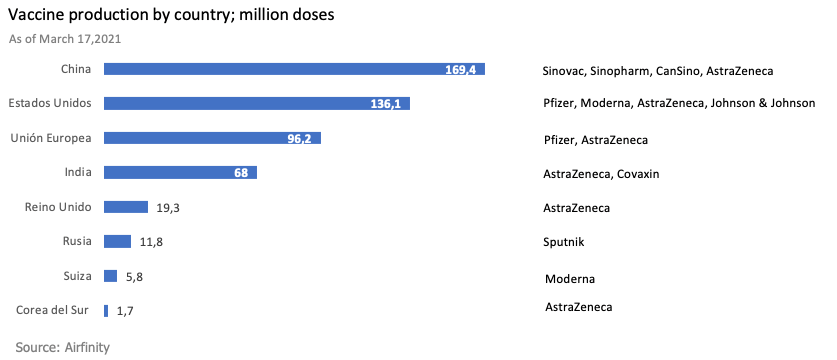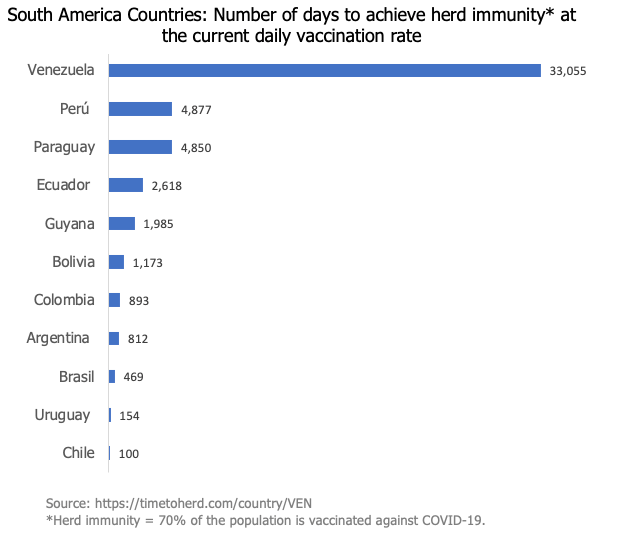





|
Tweet
|
|
|
Nicolás Maduro is attacking the Venezuelan people by blocking the entry of 2.4 million AstraZeneca covid-19 vaccines. The shipment, which was scheduled to be received last week through the Covax mechanism, the coalition of 172 nations backed by the World Health Organization seeks to guarantee developing countries immunization against the virus. Can find another attack towards Venezuelans in the diesel rationing imposed on those who produce and distribute non-durable, daily consumer goods. Maduro condemns the population to shortages and higher prices for the sale of these products because -although hard to believe- he hopes that the image of the long lines of heavy vehicles at gas stations, will put pressure on Joe Biden’s administration to unblock the executive order established on November 2021, that prohibits the exchange of oil for diesel. If the heir to Hugo Chavez were to suspend shipments to Cuba and its mafias that manage border smuggling, the Venezuelan people would have the necessary fuel to satisfy their needs. Maduro acted similarly last week as well when the Bolivarian National Armed Forces attacked a dissident front of the Revolutionary Armed Forces of Colombia (FARC in Spanish)) that does not recognize the command of “their partners and allies Iván Márquez, Jesús Santrich, el Paisa, and Romaña, in the narco-business of the Cartel of the Sun’s-FARC”. The conflict in that region has caused 2,536 Venezuelans to flee to the Colombian department of Arauca. In the case of the vaccine, everything was going well until it became known that the manufacturer was the Anglo-Swedish laboratory AstraZeneca. Ciro Ugarte, director of the Department of Health Emergencies of the Pan American Health Organization, affiliated with the WHO, assumed that Venezuela would receive the package of vaccines through Covax, which, as previously mentioned, is the Covid-19 Global Access Fund for Vaccines. On June 1, 2020, Maduro’s regimen and the interim government of Juan Guaidó signed an agreement for the joint management of the response to Covid-19 with the PAHO. In which set priority lines of action, including epidemiological surveillance, appropriate care and isolation of confirmed cases of coronavirus, and protection for health professionals. Since SARS-CoV-2 burst onto the global scene, countries have been in a race to be the first to obtain the vaccine that will “save humanity”. Russia launched Sputnik V, which was named after the first Soviet satellite to orbit the Earth and made an impact in the space race against the United States by being the first to do so. Currently, four primary sources of coronavirus vaccines exist. According to data from Airfinity, a scientific information and analysis company, these sources come from China (with 33% of all doses produced), the United States (27%), the EU (19%), and India (13%). Additionally, China has exported about 60% of the vaccines it has produced, the U.S. 0%, and India 65% of its production. Meanwhile, the EU is engaged in an intense debate over whether it should more tightly control exports. The bloc regrets what it sees as an imbalance with the United States and the United Kingdom in the immunization program. Faced with this situation, the Kremlin has launched a disinformation campaign against vaccines produced in the United States and Europe, according to a report in The New York Times. According to researchers and State Department officials, the objective is to convince Spanish-speaking countries that the Russian vaccine against the coronavirus is better than its American competitors. The Times adds that the Russian campaign has focused on Latin American countries, Mexico and Argentina, two important Latin American markets with governments linked to the Puebla Group. On the other hand, the Ukrainian Minister of Culture, Oleksandr Tkachenko, accused Russia of carrying out a disinformation campaign against AstraZeneca’s vaccine to promote his country’s vaccine, Sputnik V, in the European market. “Russia uses the information to destroy the competing vaccine and then pressures European politicians to allow the use of Sputnik”, Tkachenko wrote on his Telegram channel on March 16. Regarding Venezuela, in February, the Maduro regime reported that it had purchased 10 million doses of Sputnik V vaccine worth $200 million. So far, 250,000 doses have been received in the country in 3 batches. Now, according to the price published by the Russian National Research Center for Epidemiology and Microbiology Gamaleya, each dose costs 10 dollars. Still, the Maduro regime’s accounts are different: if what it announced is true, it paid 20 dollars per dose, that is, an additional 100 million dollars. Therefore, the fundamental reason for blocking AstraZeneca’s 2.4 million doses of the Covax mechanism is not the possible side effects -it has been proven that the health of Venezuelan’s is not something that prevents Maduro from sleeping like a child- but simply and plainly because it allows for business to be done with Vladimir Putin’s government. Hugo Chavez’s successor satisfies his ally and condemns the Venezuelan people to live with the risk of contagion for several decades. With the current daily vaccination rate, the country would reach herd immunity in 33,055 days, according to the web page Time to Herd: Tracking Covid-19 Vaccinations Rates. It also makes Venezuela a health threat to the region and the world to control the spread of covid. Maduro is increasingly showing that he has little regard for the people of Venezuela. His actions demonstrate this by favoring the fuel mafias and Cuba with diesel and his FARC partners in the narco-business and Russia in the purchase of vaccines against covid. |


